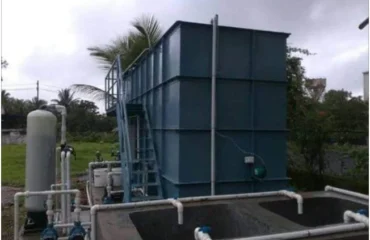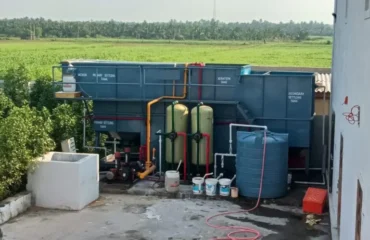Introduction
The pharmaceutical industry plays a crucial role in healthcare but also faces challenges in managing wastewater containing complex chemicals. In Vasai Virar, Amrita Water Solution offers advanced Sewage Treatment Plants (STP) and Effluent Treatment Plants (ETP) designed to meet the specific needs of pharmaceutical companies. This article discusses the importance, components, and benefits of implementing STP and ETP plants in the pharmaceutical sector in Vasai Virar.
Importance of Wastewater Treatment in the Pharmaceutical Industry
Environmental Preservation
Pharmaceutical wastewater contains various contaminants, including active pharmaceutical ingredients (APIs) and chemicals. Proper treatment is vital to prevent these pollutants from entering the environment and harming ecosystems and human health.
Regulatory Compliance
Stringent regulations govern wastewater discharge in India, requiring pharmaceutical companies to treat their wastewater effectively. Compliance ensures environmental protection and legal adherence.
Sustainability Practices
Implementing sustainable wastewater management practices aligns with corporate responsibility goals. It demonstrates a commitment to environmental stewardship, enhancing the company’s reputation and attracting environmentally conscious stakeholders.
Key Components of STP and ETP Plants
Primary Treatment
Primary treatment involves physical processes to remove large solids and organic matter.
Screening
Screens remove large debris, preventing damage to downstream treatment units.
Sedimentation
Sedimentation tanks allow solids to settle, producing sludge for further treatment.
Secondary Treatment
Biological processes degrade dissolved organic matter, reducing biochemical oxygen demand (BOD) and chemical oxygen demand (COD).
Aeration
Aeration tanks provide oxygen for aerobic bacteria to break down organic pollutants.
Activated Sludge Process
Recirculating activated sludge enhances organic matter degradation in aeration tanks.
Tertiary Treatment
Final treatment stages remove remaining contaminants to produce clean effluent.
Filtration
Advanced filtration methods remove fine particles and microorganisms.
Disinfection
Chemical or UV disinfection ensures effluent safety before discharge or reuse.
Benefits of STP and ETP Plants for the Pharmaceutical Industry
Environmental Protection
Amrita Water Solution‘s plants ensure treated wastewater meets regulatory standards, protecting the environment.
Cost Efficiency
Investing in efficient treatment reduces operational costs and regulatory penalties.
Corporate Image
Demonstrating environmental responsibility enhances the company’s image and attracts eco-conscious stakeholders.
Challenges and Solutions in Implementing STP and ETP Plants
Capital Investment
High initial costs for plant setup can be managed through financing options and scalable solutions.
Technical Expertise
Proper training and ongoing support ensure effective plant operation and maintenance.
Space Constraints
Modular designs fit treatment plants into limited spaces, common in urban areas.
Conclusion
In conclusion, STP and ETP plants are integral to sustainable pharmaceutical operations in Vasai Virar. Amrita Water Solution provides tailored solutions that ensure environmental compliance, cost efficiency, and positive corporate image. Investing in these plants not only protects the environment but also contributes to long-term business success.



